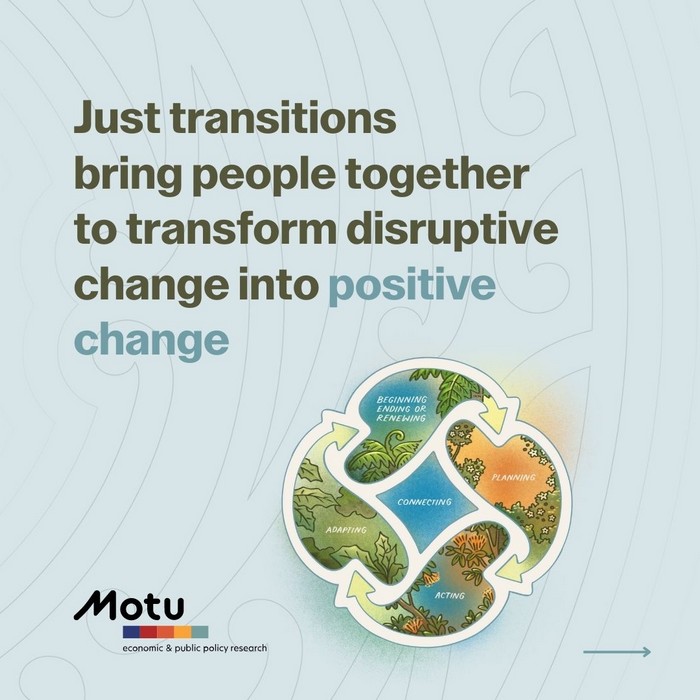New guide offers support to navigate disruption
21 July 2023
Scion scientist Oscar Montes de Oca has contributed to a new guide to help communities respond to major challenges, including disruption caused by climate change.
He was one of several researchers invited by Motu Research to join the project team that combined academic research with feedback from a range of people to develop a toolkit packed with information, case studies and conversation starters for anyone needing help to take action in the face of massive uncertainty.
Called ‘A guide to just transitions for communities in Aotearoa New Zealand’, it is free and available to download on the Motu and Ministry of Business, Innovation and Employment (MBIE) websites.
While the idea of ‘just transitions’ has been around for decades, Dr Montes de Oca says growing awareness about how climate change and other challenges can impact communities has amplified its importance.
“Disruption can impact people in different ways, and some parts of the community can be more adversely affected than others, opening the question of ‘justice’. We’ve developed the guide in such a way that we hope all people will feel empowered to tackle different challenges affecting their communities in ways that work better for everyone.
“It’s about getting people thinking about who needs to be involved to help them achieve what they want, ensuring processes are as clear as possible. I think lots of people across different parts of the community will see themselves reflected in this guide, which has been written in a very accessible way.”
The guide, commissioned by MBIE, recognises that communities, organisations and businesses need a helping hand to respond to challenges like climate change, rapidly advancing technology, employment changes in regions, and the transition to a low-carbon economy.
Research based and action oriented, it offers practical ideas, methods, and tools to enable communities to come together and work towards developing more sustainable and resilient futures that achieve equity for all. It draws on tikanga and mātauranga Māori and includes brief case studies of transitions led by iwi, hapū and Māori communities as well as other communities around Aotearoa.
Dr Montes de Oca and the team tested the structure and content in the guide with members of different communities from around the country in dialogues co-funded by the Aotearoa Foundation through Motu’s programme, Shaping New Zealand’s Low-Emission Future.
It builds on a larger MBIE’s programme of work, including a project exploring the challenges and transitional processes needed to support regions like Taranaki which has had to look for new economic opportunities beyond the oil and gas industry. This followed the Government’s decision to stop issuing exploration permits for offshore oil and gas fields in 2018. That led to the Taranaki 2050 Roadmap, a vision for a low-emissions economy in Taranaki that was co-designed by people across the region. The roadmap builds on the region’s strengths in energy, engineering, food and agriculture, and identifies new opportunities for Taranaki as it plans for a more regenerative economy and a future that is more socially inclusive. In Taranaki’s case, it means whānau, communities, local and central government, and businesses are all moving together with a plan so the entire region can grow sustainably, ensuring no one is left behind.
Dr Montes de Oca says the Just Transitions guide doesn’t need to be necessarily applied at a regional scale, but it has a strong focus on locally led change to complement work being done by government to enable just transition processes.
“Communities are uniquely placed to play a leading role in transitions because they have a deep understanding of what is happening and are closely connected to those who will be most affected.
“Communities often know what they need and have a range of skills already at hand for a just transition. Regardless of what stage people are at on their journey of change, it’s our hope that people can learn from this guide and use it to participate more fully in discussions and problem-solving, as well as create new opportunities for collaboration, partnership and innovation at a local level.”

